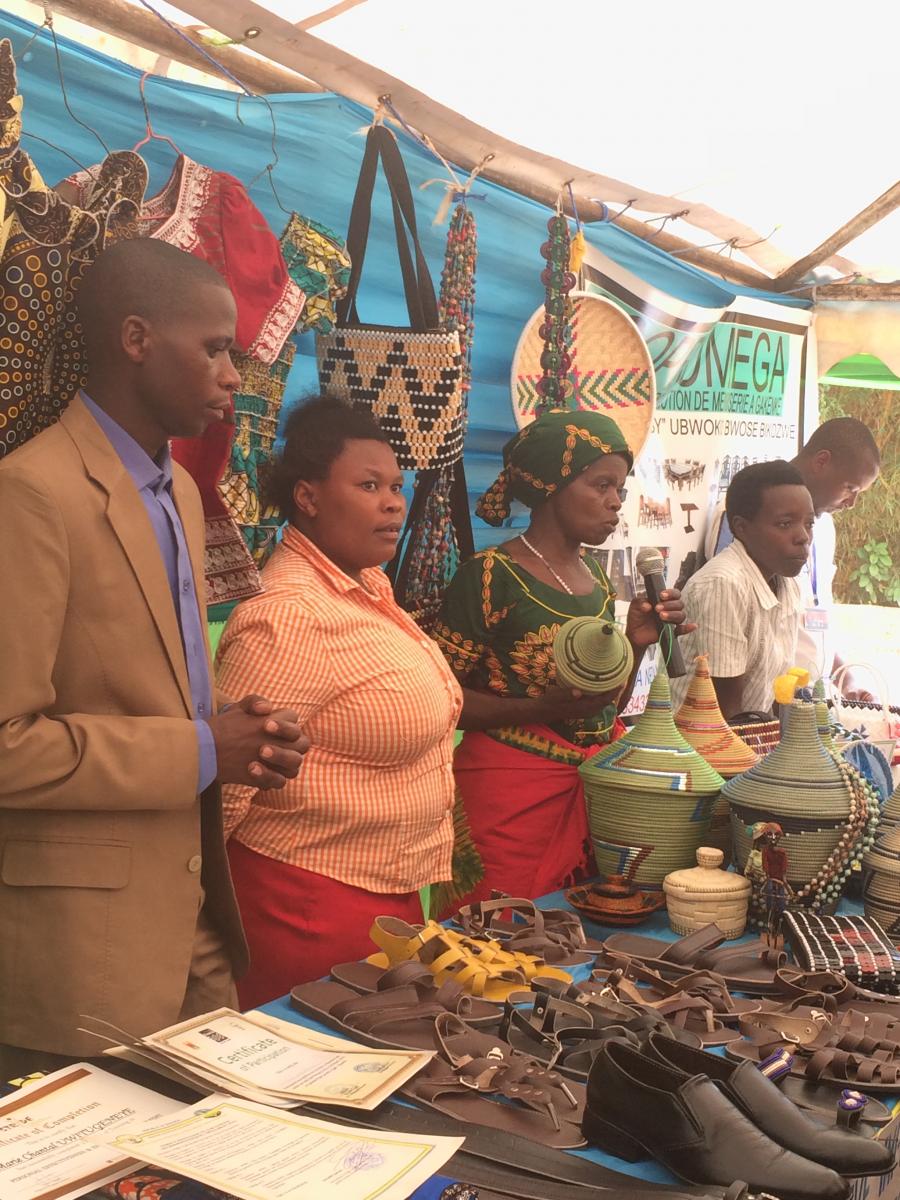Opzoeken
405 - 420 van 115 nieuws bekijken
-
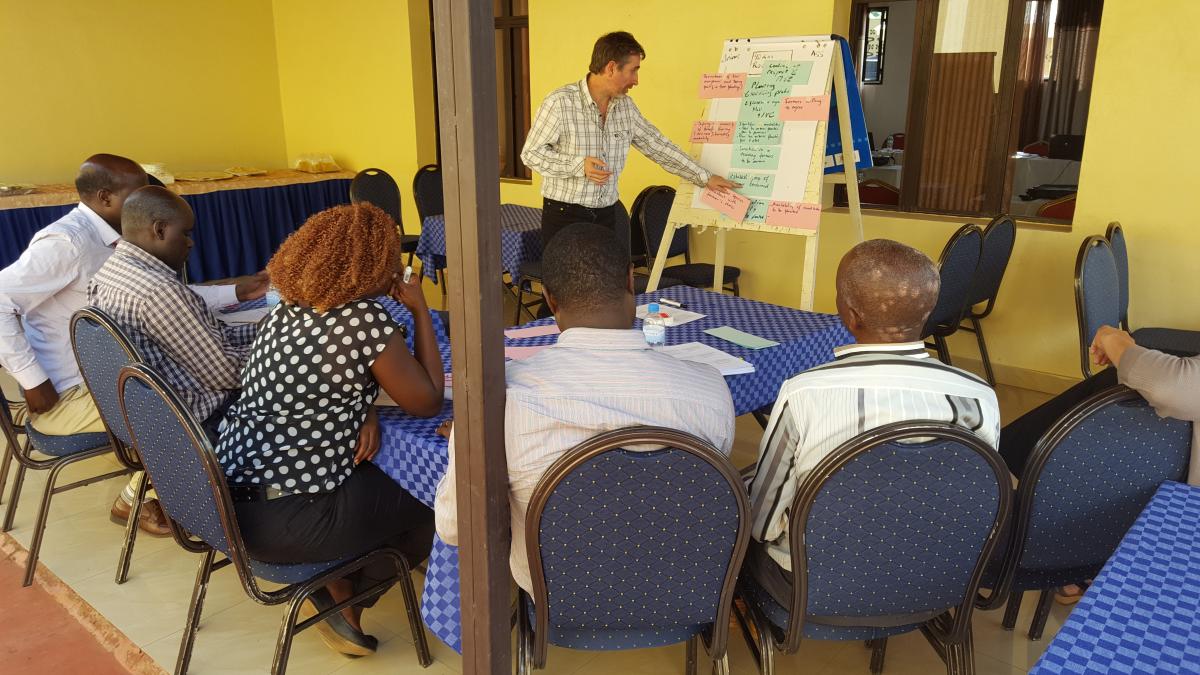
FMBE Planning workshop
Alexis DE HERDE | 16/05/2017
End of April 2017, the FMBE planning workshop took place in Rwamagana.The workshop was a unique opportunity to gather all the stakeholders of the project in order to develop a detailed planning of the impact chain of the intervention and reflect on the theory of change. FMBE will be implemented in Rwamagana District and will support the 3 Kigali districts in design and development of District Forest Management Plan (DFMP). Last but not least, FMBE will be supporting Gicumbi, Rulindo, and Gakenke districts in implementing the already designed DFMPs.
-
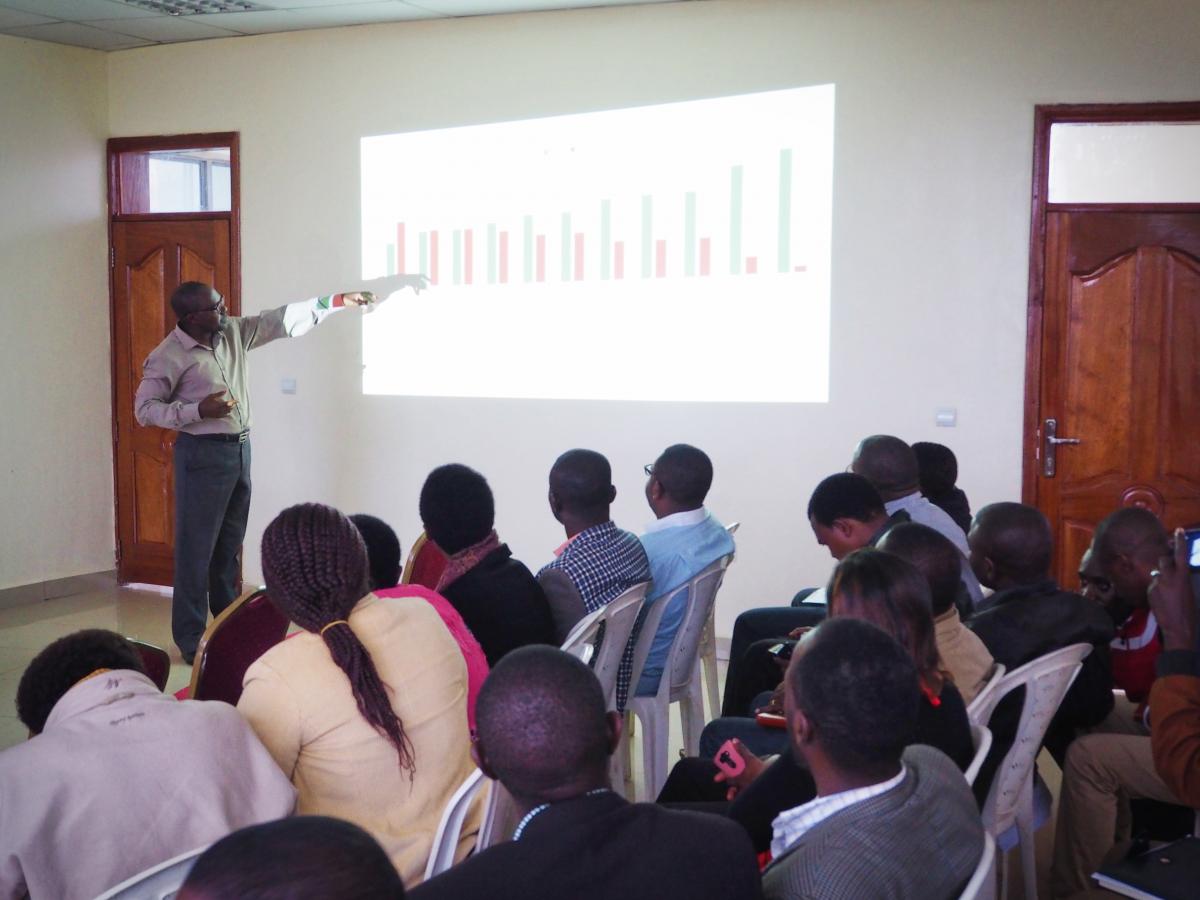
A new Coaching Programme to boost Local Government organizational performance.
Simon DESCHUTTER | 15/05/2017
On 20th January, a new Local Government Coaching programme was launched at Hotel Portofino in Kigali. The programme is implemented by Rwanda Governance Board (RGB) with support from Belgian Government through the Rwanda Decentralization Support Programme, (RDSP), which is jointly implemented by the Belgian development agency (BTC) and the ministry of local government (MINALOC).The programme is a Capacity Building initiative aimed at contributing to the improvement of service delivery to citizens as a result of capacity building at individual, organizational and institutional level of the districts. As recalled by Ambassador Fatuma NDANGIZA who officiated the launching ceremony on behalf of RGB, the new programme builds on lessons learnt from the two previous phases of the coaching program that were concluded in 2015. These include special attention to suitability of the approach to the Local Government set up/environment, the importance of an advisory role of coaches instead of gap filling/ substitution, attention for evidence based monitoring and evaluation of achievements, capacity and enhancement leading to organizational performance.Lessons learnt: demand driven design Building on these lessons learnt, the design of the new programme emphasizes on a demand driven approach for the coaching services; technical coordination by Provinces which have among others the mission to coach and provide advisory services to the districts; a clear Monitoring and Evaluation (M&E) framework with SMART indicators; and regular information sharing among coaches and with other stakeholders. The demand-driven nature of the new design resides in requests for support being formulated by districts and being further analysed by Coaches before formulation of a tailor made intervention. The focus of the programme is organizational performance with Imihigo[1] as the entry point. Specifically, the support targets addressing gaps in processes as per requests by Local Government (lesson learnt from previous phases: addressing gaps instead of filling them). Coaches hereby support districts in analysing and prioritization identified gaps; in designing the interventions required to address the gaps, and also advise the districts on how best to implement the interventions and monitor the implementation progress. Implementation status of the coaching programme The new program is implemented by RGB which avail 10 coaches based in Provinces and City of Kigali. A coordination unit comprising of the program coordinator and one M&E specialist is based in RGB. As Provinces and City of Kigali play a key role in the management of the programme, a Memorandum of Understanding was signed between RGB and Provinces/City of Kigali to specify their respective roles and responsibilities in the implementation framework. During consultative sessions and the official launch at Province and Cilty of Kigali level, beneficiaries expressed their expectations in the program as well as their readiness to use the opportunity to boost district performance. “The programme will certainly help us unlock our potential and raise our performance towards better service delivery to our citizens” said Mr JABO Paul, Northern Province Executive Secretary during the launch of the program in Northern Province. Mr Cyprien NSENGIMANA, one of the coaches in Southern Province affirms that: “the program is highly appreciated by beneficiaries who consider coaching as a means to solve organisational performance problems. Since we started, local officials express different needs that we address through interactive sessions with coaching counterparts, peer learning among coaching beneficiaries, close collaboration with other partners, and advocacy to institutions concerned with local government capacity development. The coaching programme among RDSP’s key activities in partnership with RGB and it is expected to substantially contribute to the improvement of service delivery through enhanced Local Government organizational performance. [1] Imihigo (performance contracts) is a program of the Rwandese Government, based on Rwandan culture and traditional practices (Imihigo is Kinyarwanda for ‘to vow to deliver’) aimed at enhancing organizational performance of local governments.
-

Fire safety management trainings to increase the safety of health facilities
Alexis DE HERDE | 20/03/2017
Through “Ubuzima Burambye” Health Programme, BTC Rwanda - in close partnership with the Ministry of Health - wants to strengthen the quality of primary health care and health services in Rwanda. One of the expected results of the programme is to set up a functional quality assurance system at the level of all hospitals. It includes fire prevention and fire safety management. The Ministry of Health is mandated to oversee the quality and safety in all health facilities in Rwanda. It has been observed by the Ministry that some health facilities, were encountered by fire outbreak and there was no fire safety management in place. In this context, the Ministry of Health in collaboration with Rwanda National Police have developed fire safety training programme, focusing on health facilities to ensure safety of healthcare providers, patients, public and infrastructure. Supported by BTC, a first set of theoretical and practical "training for trainers" took place in Kigali. The newly formed trainers are coming from different health facilities in the country. They have acquired basic skills, knowledge and abilities on fire safety management and are now able to develop fire safety program and plans for preparedness. In collaboration with the Ministry of Health and the National Police, they will guide, inspect and evaluate fire risks in the health facilities. Appropriate measures will be taken if needed. The trainer’s next mission is now to train staff on fire safety management within the health facilities. This is a crucial step for making Rwandan health facilities comply with national and international accreditation criteria on fire prevention.
-
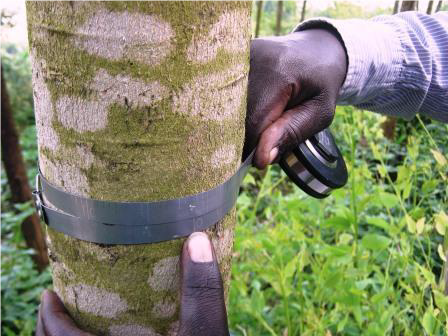
The Study and Expertise Fund finances the Rwanda National Forest Inventory
Alexis DE HERDE | 15/03/2017
In 2015 the Rwanda Natural Resource Authorities conducted a National Forest Inventory (NFI), based on a large random sampling - 2678 sample units - covering all non-protected forests, shrub-lands and tree resources in ago-forestry areas of the country.Finding shows that more than 10% of sample units are not any longer forests in 2015. They have evolved to other land uses. For shrub-lands and savanna, more than 25% have been converted to other land uses. This trend led to a decrease of 11,4% of total national forest cover since 2009.The situation of both public and private production forests in Rwanda is problematic, with an average stock of only 50 m3/ha, while it should be largely superior to 100. The situation of the wood stock is particularly dramatic in small individual private forests - 68% of the non-protected forests - where the average volume reaches only 17 m3/ha.Optimal Management of Tree resources is a necessity In total, the current forest resources are producing around 2.3 Million oven dry tons per year (Modt/y). But the woody biomass demand is so high - 5.9 Modt/y in 2015 - that it leads to over-exploitation & forest degradation. Moreover, it constantly reduces the supply capacity for the coming years. With the population growth, demand will increase to 6.8 Modt/y by 2020. Drastic measures must be taken to reduce the demand to a sustainable level.Small forests are over-exploitedMore than 50% of small forests have been cut in the last 2 years and they are very old which makes them unproductive. Small private forests should be the focus of the government efforts in order to reverse forest degradation.State forests constitute the last stocks for the industry State forests representing 28% of non-protected forests are better maintained with an average volume of around 127 m3/ha. They are essentially distributed in Southern and Western Provinces, and constitute the last wood stocks able to sustain the development of the wood industry. But they are becoming old, less productive and encroached by high pressure on forest resources. The priority focus should be to ensure their long term concession to private operators, based on well-established management plans. The concession approach could be the foundation for building a professional forest industry sector in Rwanda.Shrub-lands are under threatShrub-lands and savanna areas represent 35% of the production areas, but count only for 6% of the remaining wood stock and 3 % of the annual sustainable supply of wood. They are already too degraded and are the most threatened by conversion into other land. Urgent measures in terms of protection and conversion into well managed production forests should be taken, starting with updating the map of cadaster and ownership.Agroforestry could be boosted Tree resources in agroforestry areas count for 39% of the current national woody stock, and for 27% of the annual sustainable supply of woody biomass. By supporting dissemination of agroforestry technics in collaboration with the Rwanda Agriculture Board, tree resources could be doubled in crop areas. They could contribute for more than 40% of the yearly sustainable supply of woody biomass.
-
LAUNCH LOCAL COMPETITIVENESS FACILITY
Elisabeth BULCKE | 15/11/2016
new grant facility supporting business partnershipsOn the 7th of November 2016, the national launch of the “Local Competitiveness Facility” (LCF) grant fund took place simultaneously in the four pilot districts in Rwanda. LCF is a matched grant fund with the objective to support private business partnerships to enhance Local Economic Development (LED). The fund will focus on innovative value chain projects including pro-poor businesses in various sectors. Through the cooperation of Belgium and Rwanda, the LCF grant fund (worth 2,4m EUR) will be implemented by the Local Administrative Entities Development Agency (LODA) of Rwanda together with four pilot districts throughout the country. The main purpose of LCF is to fund innovative economic partnership projects to enhance pro-poor local economic development (LED). LCF will support partnerships companies of different sizes, cooperatives and also NGO’s and TVET centers can under certain circumstances be part of a partnership. The supported projects must be innovative in the area of value chain development and must have a positive LED and a real pro-poor impact. The following budgets are available for beneficiaries: Projects under window 1:Project Value: Between 6.170 EUR and 11.460 EUR Grant from LCF: 90% Own Contribution from project partners: 10% own contribution (cash or in-kind)Projects under window 2:Project Value: Between 11.460 EUR and 45.853 EURGrant from LCF: 70%Own Contribution from project partners: 30% own contribution (cash or in-kind)LCF will not only provide financial support to the beneficiaries, there will also be an important focus on capacity building. Each potential applicant can benefit from capacity building related to the elaboration and application to the LCF Fund. In addition, each beneficiary will have the opportunity to benefit from additional capacity building training related to project management, financial management and procurement and marketing. In cases where other skills development is required to implement a project, this skills development, or capacity building, can be part of the project budget. As from the moment of the launch, information sessions and training on LCF will be organized in the 4 pilot districts and their sectors. Purpose is to raise awareness among local businesses, farmers, cooperatives, TVET centers, NGO’s, etc. on the possibilities and procedures of LCF. Brochures in both Kinyarwanda and English are distributed among the attendants who can also ask their questions regarding the application procedures. More information: www.lcf.rw
-

Training on local economic development
Carl THEUNIS | 09/08/2016
This is a video about the training of the Vice-Mayors in charge of Economic Affairs of all the districts in Rwanda. The training focused on Local Economic Development (LED). Participants learned more about what is LED, how to ensure proper planning of LED infrastructure projects, how to exploit local potentialities etc.The training took place in Kigali on 24-25 may 2016. It was organized by the Local Administrative Entities Development Agency (LODA) and supported by the Belgian Government in the framework of the Rwanda Decentralisation Support programme (RDSP) as well as the German Government through the KFW Development Bank.
-
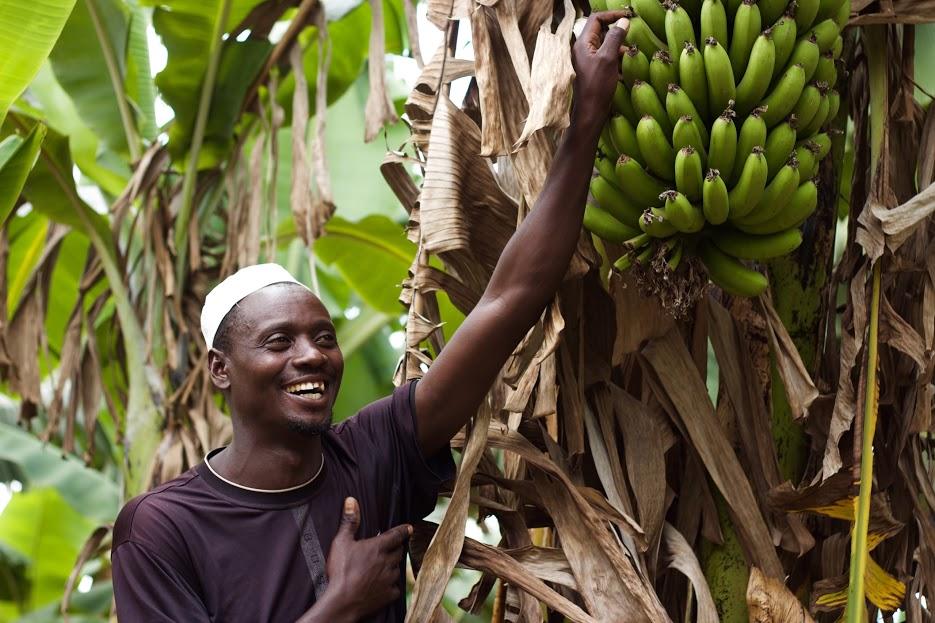
-

Training on site : students learning how to build schools
Guido COUCK | 17/12/2015
This video explains how the Belgian-Rwandan cooperation introduced 'training on site', teaching students in technical and vocational education and training (TVET) how to build schools.The video was shown during the international knowledge-sharing TVET symposium, which was organised by PAFP in October 2015, in collaboration with different development partners, including Rwanda's Workforce Development Authority (WDA) and the Rwandan Ministry of Education.
-

Bridging the gap: from traditional to competency-based training
Guido COUCK | 17/12/2015
Bridging the gap: from traditional to competency-based training.A new teaching and assessment approach in technical and vocational education and training (TVET) in Rwanda.This video was shown during the international knowledge-sharing TVET symposium, which was organised by PAFP in October 2015, in collaboration with different development partners, including Rwanda's Workforce Development Authority (WDA) and the Rwandan Ministry of Education.
-

Chainsaw training for better forest management in Rwanda
Carl THEUNIS | 15/12/2015
Wood is a major natural resource for Rwanda. Timber is used for building schools and houses and throughout the country wood is used for cooking. In Rwanda, traditionally trees are felled with the machete, which implies the trunk is cut at man’s height and much timber is wasted. With a chainsaw however, trunks can be cut low to the ground. And of course trees are felled faster and more efficiently. That is why lumbermen and forest managers must learn to handle the chainsaw. Seven lumbermen and forest managers attended a ten-day training session on how to use the chainsaw. Special attention was paid to safety issues and forest management. The trainees are to transfer their know-how to other forest managers. This video shows you how the seven trainees did at the end of the training session. Training was offered by the Belgian-Rwandan reforestation project PAREF II, which assists the Rwanda government in its ambitious plan to expand Rwanda’s forest acreage with 30% by 2020 through better forest management.
